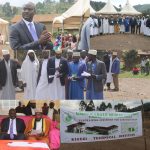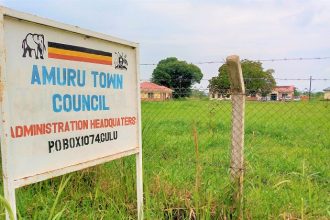In 2014, the government de-gazetted the Umukuka of the Bamasaba people, His Highness Wilson Weasa Wamimbi, due to controversial titles used by many cultural leaders. Umukuka Wamimbi has since passed away.
Ten years ago, the Ugandan government de-gazetted 14 cultural and traditional leaders. The decision followed errors and inconsistencies in their titles and names.
Among those de-gazetted were the kings of Buganda, Bunyoro Toro, cultural leaders of the Bamasaba, the Alur king, and others. This was announced in a communiqué by Gender Minister Hon Mary Karoro Okurut.
In General Notice 303 of 2014, the minister instructed the Uganda Publishing Cooperation to de-gazette these cultural and traditional leaders so that appropriate titles could be determined.
This was further confirmed by the State Minister for Gender, Hon Rukia Nakadama, who told Uganda Radio Network (URN) that they intended to conduct in-depth consultations on appropriate titles for cultural and traditional leaders.
The appropriate titles for cultural and traditional leaders are determined by their people and local constitutions. For example, among the Bamasaba people, the cultural leader is supposed to be called Uwelukoosi, while the use of the word Uweshirifa is disliked by many, including the author of the Bamasaba cultural institution’s anthem, Mrs. Khanyiga. She argues that Uweshirifa is a title reserved for God and not for any mortal. This view is shared by many, including the author of this article.
While the Inzuymasaba constitution bestows the title of Uwelukoosi (person of respect) on the Umukuka, President Museveni and the government typically address the cultural leaders of the Bamasaba people as “Their Highnesses,” which is synonymous with Uwelukoosi.
Cultural leaders and traditional rulers serve as custodians of societal norms and help to informally guide their communities on various aspects of culture, customs, and daily life. They also play a role in shaping the morals of their people. Customary law, though unwritten, is a significant source of law and provides guidance in daily activities.
The writer is a researcher based in Mbale. Tel: 0782231577/0706655811.




















